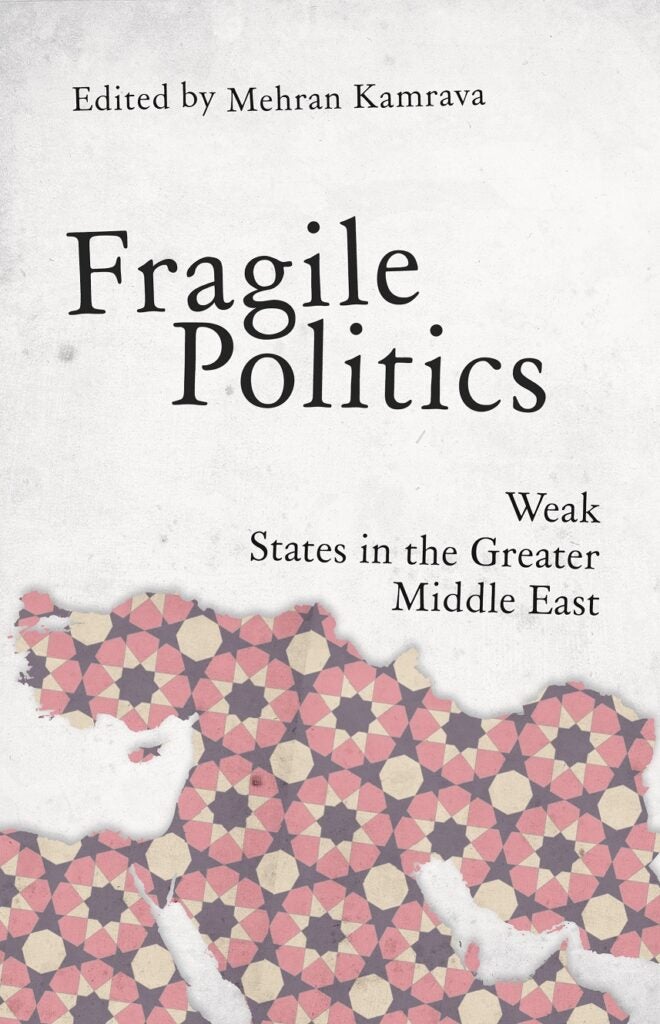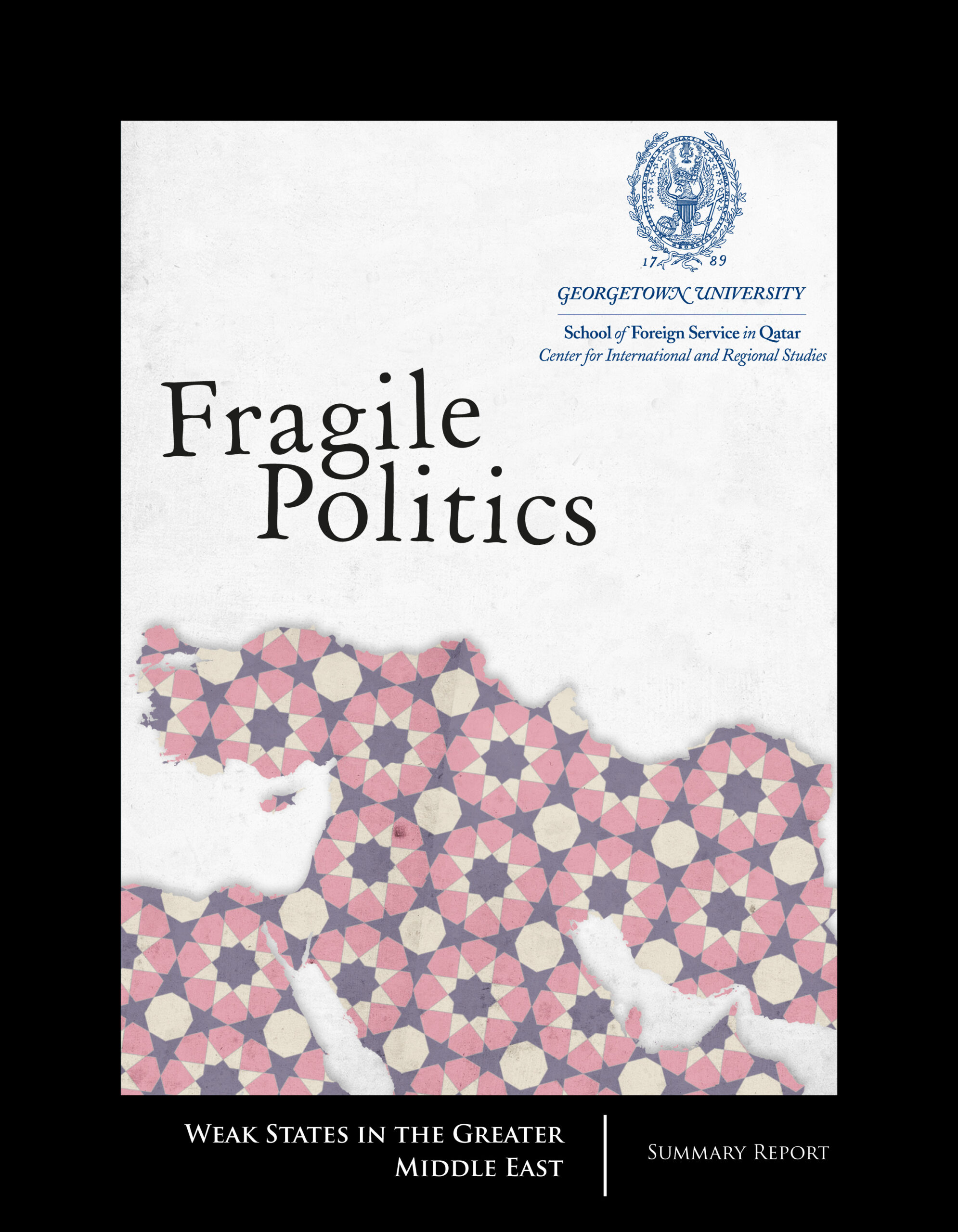Publications

Book

Mehran Kamrava, ed., Fragile Politics: Weak States in the Greater Middle East (Oxford University Press/Hurst, 2016).
The 2011 Arab uprisings precipitated the relatively quick collapse of a number of Middle Eastern states once perceived as invincible. The Tunisian and Egyptian states succumbed to revolutionary upheavals early on, followed by that of Qadhafi’s Libya. Yemen’s President Saleh was also eventually forced to give up power. A bloody civil war continues to rage in Syria. These uprisings highlighted weaknesses in the capacity and legitimacy of states across the Arab Middle East. This book provides a comprehensive study of state weakness—or of ‘weak states’—across the Greater Middle East. Read more from Oxford University Press.
Summary Report

“Fragile Politics: Weak States in the Greater Middle East,” CIRS Summary Report no. 11 (Doha, Qatar: Center for International and Regional Studies, 2014).
The CIRS Summary Report titled “Fragile Politics: Weak States in the Greater Middle East” details the findings of the larger CIRS research initiative on “Weak States in the Greater Middle East.” It begins with a critical analysis of current definitions and terminology of weak and fragile states, scrutinizing the political implications of the prevailing discourse within the setting of the broader Middle East. The research also examines the domestic, regional, and global causes and consequences for the Middle East of the “fragility” of states stretching from Afghanistan and Pakistan in the east to Libya in the west. Employing multidisciplinary perspectives, we study the causes and implications of conceptual notions of state fragility across the region in relation to areas such as politics and security, economics and natural resources, intra- and inter-state relations, migration and population movements, and the broader regional and global political economies.